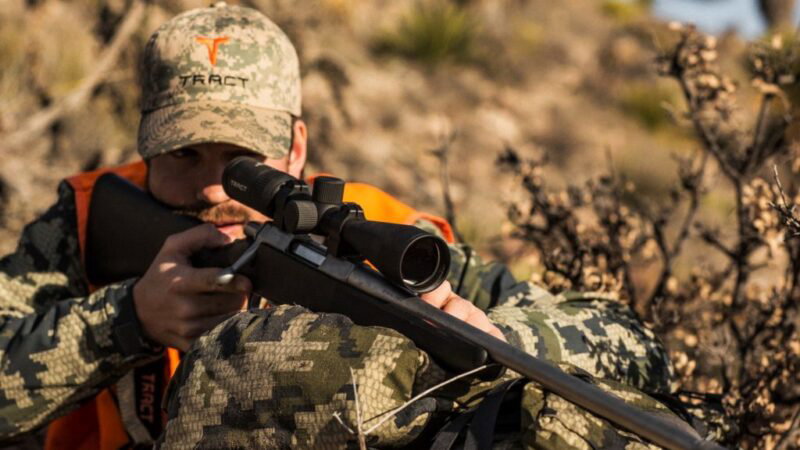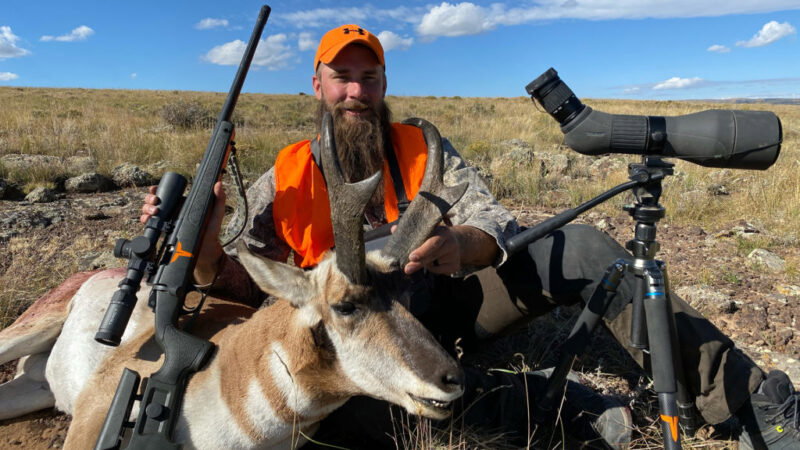Building Your Own Rifle Range
Building your own rifle range on private property can provide a myriad of benefits versus using a public range.
Building Your Own Rifle Range. There is nothing quite like the purposeful pleasure of a beautiful day spent at the public range. Sometimes it’s the perfect way to get out of the house, sight in the scope, and sharpen your skills for the upcoming rifle season. However, for the same reason that cyclists are buying pelotons and golfers are buying golf simulators, shooting enthusiasts are finally biting the bullet and installing rifle ranges on the homestead.
A Note On Building Your Own Rifle Range
If you plan on building your own rifle range, please check all local ordinances to ensure you’re within the law. Also, please consider your property in that it’s a tract of land where a shooting range can be safely installed without endangering the lives of other people or animals. A quick phone call to the police station can help you answer any questions you may have regarding legalities. Imagine being able to put together a couple of groupings after mowing the lawn or having friends over to the house for some barbecue and a friendly shooting competition. This is the reality that many Americans are pursuing in recent years and the benefits are numerous. We’ve put together some thoughts on why this is a growing trend across the country and some key considerations to walk you through your new home on the range.
Three Major Benefits to Building Your Own Rifle Range
Convenience
The more barriers we can remove that prevent us from doing the things we love to do, the easier it is for us to do them! No more loading the truck up and driving long distances to get to the range. No more waiting for a spot or for 20 other shooters to score their shots, change targets, and clear the range. With all these time savings you’ll probably be able to triple the shots you can take during each range session and dramatically improve your skill level over time.
Cost
Depending on how you go about building your own range and how frequently you use it, there can be some significant cost savings over time. First, you’ll be saving on range fees. Especially when you consider how much more you’ll be shooting with the at-home range, these could really add up. Secondly, you’ve got to consider the gas savings you’ll experience from not having to drive across the county to get some shots off.
Community
While this might seem counterintuitive – having the range in your own domain helps you cultivate the community that you want – not just whoever happens to be at the range. Invite your hunting buddies over a few times a year to ensure nobody misses that big buck this season. Show your kids/nephews/nieces/grandkids how to shoot in the safety of your own range. The community creating and knowledge-sharing possibilities are endless and we think this is one of the greatest benefits of an at-home setup.
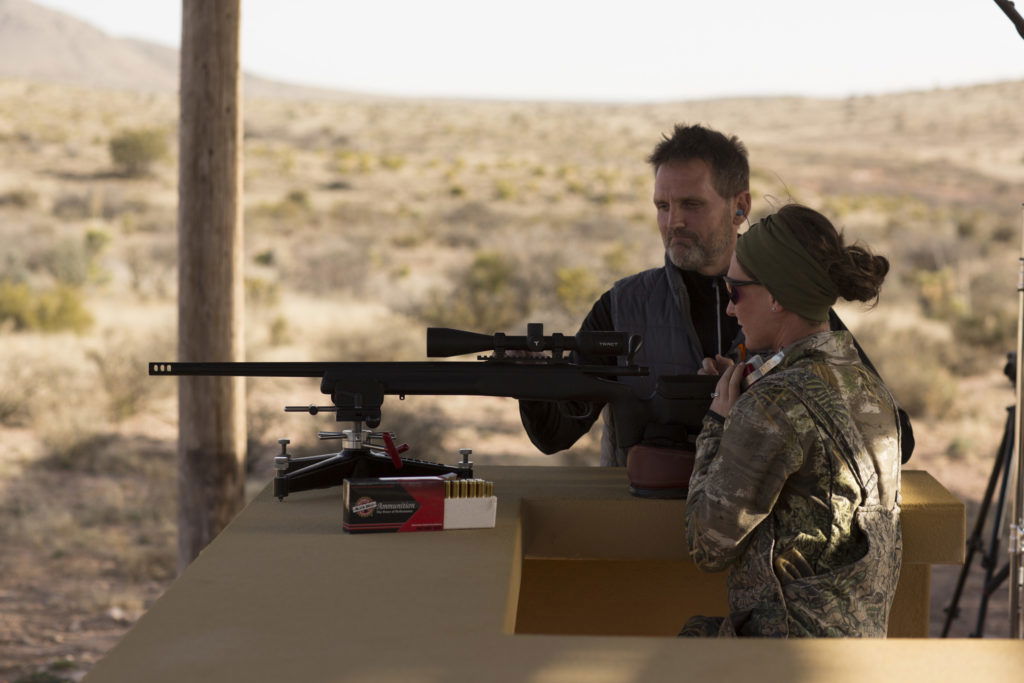
Three Major Steps to Building a Rifle Range at Home
Location, Location, Location
So you’re feeling like an at-home range will benefit you, your family, and your community of hunting/shooting enthusiasts. The first step is to evaluate whether you have the appropriate space and location for an at-home range.
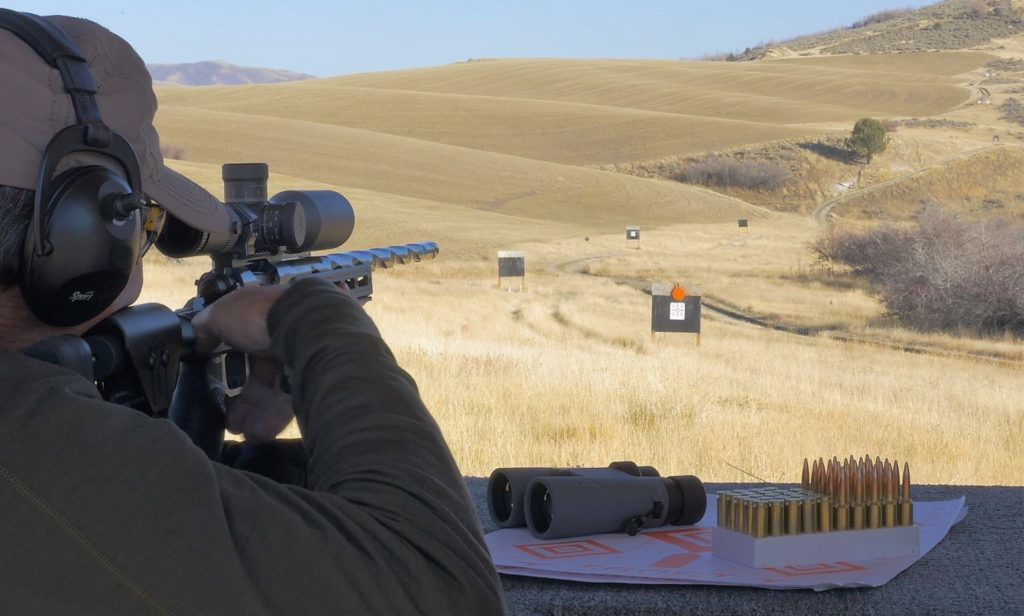
Take a look at satellite imagery of the property to see if there is a natural location for the range or if there are any topographical features that could serve as a natural backstop. You’ll also want to determine the safest possible direction to shoot towards, ensuring there is zero human activity beyond the target end of your range.
Consider when you plan to shoot most often and where the sun will be at that time of day to avoid shooting with the sun shining directly into your eyes. If getting behind the gun more frequently is one of your primary reasons for building your own rifle range one, making sure yours is located at a very convenient distance from your home is key.
Building Blocks of A Great Range
Since safety is always your primary concern, the first thing you’re going to need is an appropriate backstop. This could be a natural hill. But most likely you will have to rent some heavy equipment and move some earth to make sure the possibility of dangerous errant shots is eliminated.
With the backstop in place, you’ll want to begin building a shooting stand on the opposite end. Most common designs have a skillion or lean-to-style roof to protect the shooter from basic elements. Your stand should incorporate a bench of some kind but can be as simple as a picnic table with some sandbags.
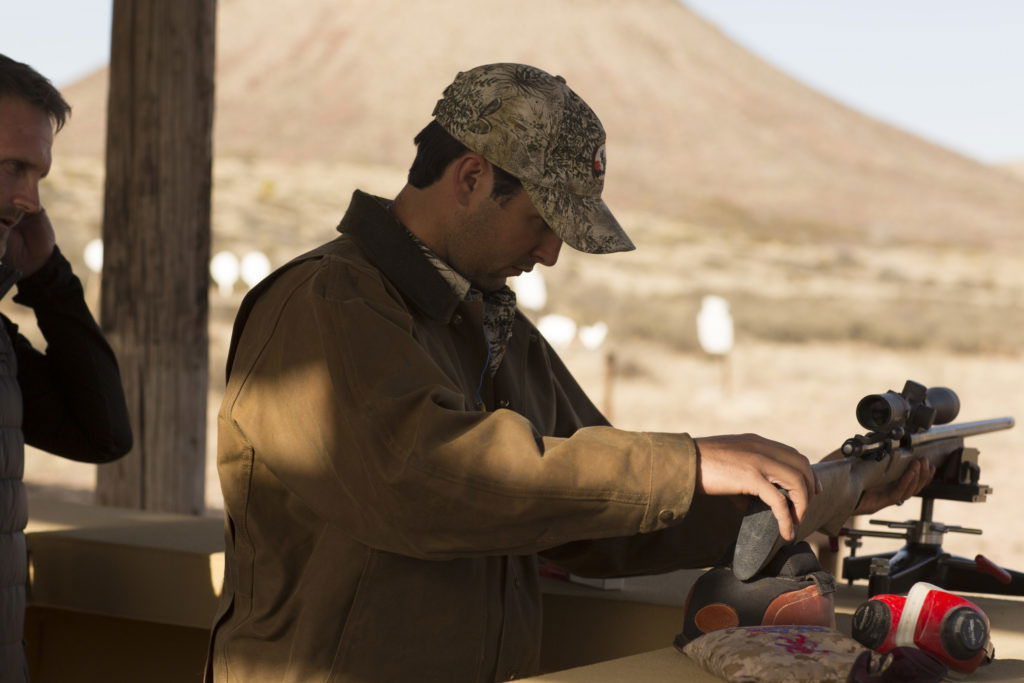
The final key element of the range is installing some targets. This is probably the most fun aspect of having your own range as you can get pretty creative here. You can spend some money on cool target options like Challenge Targets and Mr. Target. Or make your own by building a target stand or stringing a rope across two posts to hang targets from. Remember how fun it was to shoot tin cans as a kid? The range is your oyster!
Make A Plan & Get To Work (preferably with friends)
Finally, this is going to take some work. Call the folks who are most likely going to be shooting with you throughout the year and give them the opportunity to chip in with some elbow grease. If you have to clear a lot of foliage and move a lot of earth, you’ll want to make sure to give yourself enough time to get the job done. Breaking down the project into multiple weekends, for instance, will also give your volunteer work crew more opportunities to pitch in.
If there are plans in your future for building your own rifle range, then good luck! Please send us some photos to support@tractoptics.com








